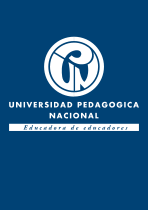Del lenguaje a lalangue : cruces entre el psicoanálisis y la lingüística.

Citación
Fecha
2021-01-01Autor
Savio, Ana Karina
Enlace al recurso
https://revistas.pedagogica.edu.co/index.php/RF/article/view/10927Metadatos
Mostrar el registro completo del ítemResumen
Este artículo de reflexión indaga las nociones de lengua, lenguaje y lalangue en las enseñanzas de Lacan. En primer lugar, interroga el término lenguaje en la definición de inconsciente. Por ello, problematiza la distinción entre lengua y lenguaje en los desarrollos teóricos de Saussure (2007), Benveniste (2004) y Jakobson (1985). En segundo lugar, estudia el neologismo lalangue en este discurso para pensar qué matices agrega este término. Como resultado de este trabajo, se advierte que la noción delenguaje es más adecuada que la de lengua para aludir al inconsciente. En efecto, el lenguaje es considerado un fenómeno complejo, que no resulta aprehensible con facilidad. Sobre la lalangue, se evidencian cinco ejes con los que se articula: los equívocos, el inconsciente, la interpretación, el laleo y el síntoma.
Abstract
This reflective article inquires the notions of language, speech and lalangue in Lacan’s teachings. First, it interrogates the term language in the definition of the unconscious. Therefore, it problematizes the distinction between language and speech in the theoretical developments of Saussure (2007), Benveniste (2004) and Jakobson (1985). Second, it studies the lalangue neologism in this discourse to think about the nuances this term adds. As a result of this work, it is noted that thenotion of language is more appropriate than speech to refer to the unconscious. Indeed, language is considered a complex phenomenon, which is not easily apprehended. Referring to the lalangue, five axes with which it is articulated are evident:the misunderstandings, the unconscious, the interpretation, the lalation and the symptom.
Editorial
Editorial Universidad Pedagógica Nacional
Fuente
Colecciones
- Revista Folios [571]
